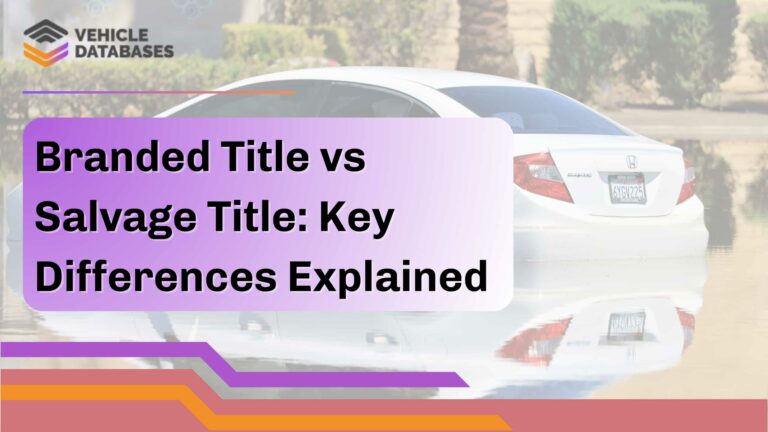In today’s digital age, data is driving innovation across industries, and the automotive sector is no exception. Through data science, manufacturers, dealerships, and service providers are optimizing operations and improving customer experiences.
The major players in the industry anticipate even more changes and innovations in the future. With technological advancements in autonomous vehicles, manufacturing processes, and others, data science has become a significant subject.
Data Science in the Automotive Industry
Here’s how data science works: It uses scientific methods and processes to analyze and understand datasets, large or small, and then applies these insights to a wide range of areas.
Let’s break it down step-by-step:
- Scientific Methods and Processes: Data science employs rigorous scientific methods and processes to extract insights from data. This involves applying mathematics, statistics, and computer science principles to analyze and interpret datasets systematically.
- Analyzing and Understanding Datasets: Next, it involves examining small to extremely large and complex datasets. This analysis includes tasks such as data cleaning (removing errors or inconsistencies), data exploration (identifying patterns or trends), and statistical analysis (quantifying relationships between variables).
- Applying Knowledge to Various Areas: Once insights are derived from the data, data science applies this knowledge to a wide range of fields and industries. For example, in the automotive industry, data science can optimize manufacturing processes, predict vehicle maintenance needs, personalize marketing campaigns, or improve customer experiences.
Data science in the automotive industry aims to turn raw data into actionable insights that can inform decision-making and drive positive outcomes across different domains.
How Data Science is Used in Every Step of The Automotive Lifecycle
Automakers and other automotive businesses have taken advantage of data science and its scientific methods and are now enjoying the benefits in several sectors. Throughout the automotive lifecycle, you can see data science in action.
You can find data science in the following areas:
- Product development
- Supply chain
- Manufacturing
- Sales and marketing
- Finance
Data Science in Product Development
Product development is creating an idea or solution, designing, and bringing a new product to market. It involves idea generation, market research, design, prototyping, testing, and commercialization.
Data science is crucial in this process by providing valuable insights from analyzing consumer behavior, market trends, and product performance data. Here’s a good example: automakers are always trying to make their products better, right? How do they know what to fix and what to improve on? Data!
They analyze car configurations using small datasets, verify reliability, and conduct tests before implementing these insights on a large scale and at the manufacturing level. With data science, they can easily run simulations of how different components would come together and verify the feasibility of their designs.
Data Science in Supply Chain Management
Data analytics can optimize the supply chain by forecasting parts and components, customer preferences for different vehicle models, predicting supplier performance, and optimizing inventory levels. This will ensure a timely supply of spare parts and reduced lead times.
With data science, manufacturers gain more comprehensive control over the supply chain – including logistics and management.
Data Science in Manufacturing
Data science also plays a vital role in vehicle manufacturing. With data science, engineers can analyze data from operations, finances, and suppliers to be sure that everything goes according to design and on time.
Quality control is a perfect example of data science in manufacturing. Through advanced analytics and machine learning algorithms in the automotive industry, companies can detect defects or anomalies in the production process early on, allowing for timely adjustments and improvements.
Read Also: How to Access UK Vehicle Data with Databases and APIs
Data Science in Sales and Marketing
By analyzing customer data, market trends, and consumer behavior, businesses can tailor their marketing efforts to specific demographics, preferences, and buying patterns. Data science enables companies to segment their customer base, personalize marketing campaigns, and determine the most effective channels for reaching potential buyers.
Predictive analytics can also forecast sales trends, identify opportunities for upselling or cross-selling, and optimize pricing strategies to maximize revenue.
Data Science in Business and Finance
In business, data science enables companies to optimize operations, improve efficiency, and accurately introduce automation. By analyzing customer data, market trends, and operational metrics, businesses can find more consumer problems to solve, identify growth opportunities, streamline processes, and improve efficiency.
Ultimately, data science aims to improve product offerings, operations, and customer engagement. With these three in check, they can expect to see more engagement and profits in their businesses.
READ ALSO: How will car API data connect with big auto industry data?
What exactly is big data in the automobile industry?
Big data in the automobile industry refers to the large volume, variety, and velocity of data generated by various sources within the automotive ecosystem.
This data encompasses a wide range of information, including vehicle sensor data, GPS data, telematics data, manufacturing data, customer data, and more. The automotive industry can use this data to improve user connectivity and driver safety.
Data Science Applications in the Automotive Industry
What businesses can thrive using big data analysis? There are lots actually. It is not limited to the manufacturing sector alone, although it is applied there more often than others. The following businesses can also benefit from applying data science techniques to their business:
Automobile Manufacturers: Companies that design, produce, and sell vehicles can use data science to optimize manufacturing processes, improve vehicle performance, and enhance safety features. Analyzing data from sensors embedded in vehicles can also help manufacturers identify areas for product improvement and innovation.
Automotive Suppliers: Suppliers of components, parts, and systems to automobile manufacturers can leverage data science to optimize inventory management, forecast demand, and improve product quality. Analyzing data from production processes can help suppliers identify opportunities for efficiency gains and cost savings.
Dealerships and Retailers: Automotive dealerships and retailers can use data science to enhance customer relationship management, personalize marketing campaigns, and improve sales forecasting. Analyzing customer data can help dealerships identify potential buyers, tailor promotions to individual preferences, and improve pricing strategies.
Aftermarket Service Providers: Companies that offer maintenance, repair, and aftermarket services for vehicles can benefit from data science techniques to optimize service scheduling, predict maintenance needs, and improve customer satisfaction. Analyzing data from connected cars can help service providers proactively address issues and minimize vehicle downtime.
Automotive Finance and Insurance Companies: Finance and insurance companies specializing in automotive products can use data science to assess risk, detect fraud, and personalize insurance offerings. Analyzing customer data and driving behavior can help insurers accurately price policies and offer discounts to safe drivers.
Transportation and Mobility Services: Companies offering transportation and mobility services, such as ride-hailing, car-sharing, and subscription-based models, can leverage data science to optimize fleet management, route planning, and pricing strategies. Analyzing data from user interactions and vehicle usage patterns can help companies improve service efficiency and customer satisfaction.
Overall, businesses across the automotive industry value chain can benefit from harnessing the power of data science to drive innovation, improve operational efficiency, and enhance customer experiences.
An Important Tool to Consider: Vehicle Data APIs
Where do you get your data? Are you building your own data sets? Why don’t you allow Vehicle Databases to give you access to vehicle specifications, features, historical trends, and data?
After integrating these APIs, dealerships, car finance companies, insurance companies, and other businesses can save time and resources and ensure the reliability and consistency of the data used in decision-making processes.
Here are some APIs to consider:
- OCR API Services
- VIN decoding API
- Classic VIN decoder API
- Vehicle specification API
- Vehicle market value API
- Vehicle services API
- License plate API
- Auction history API
- Sales history API
- VIN title check API
- Vehicle media API
- Window sticker API
- Electric Vehicle Specifications API
We have over 60 million vehicle records and data. With this, you and your customers can access enough data to make the right decisions. Get a free account with free trial credits & test our APIs easily!




